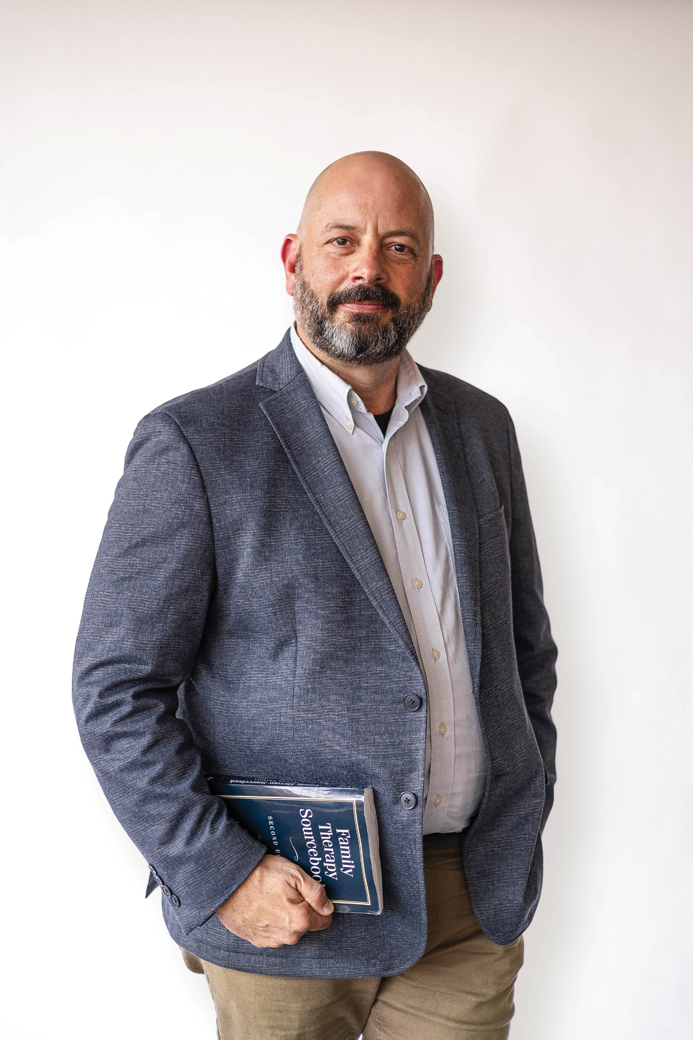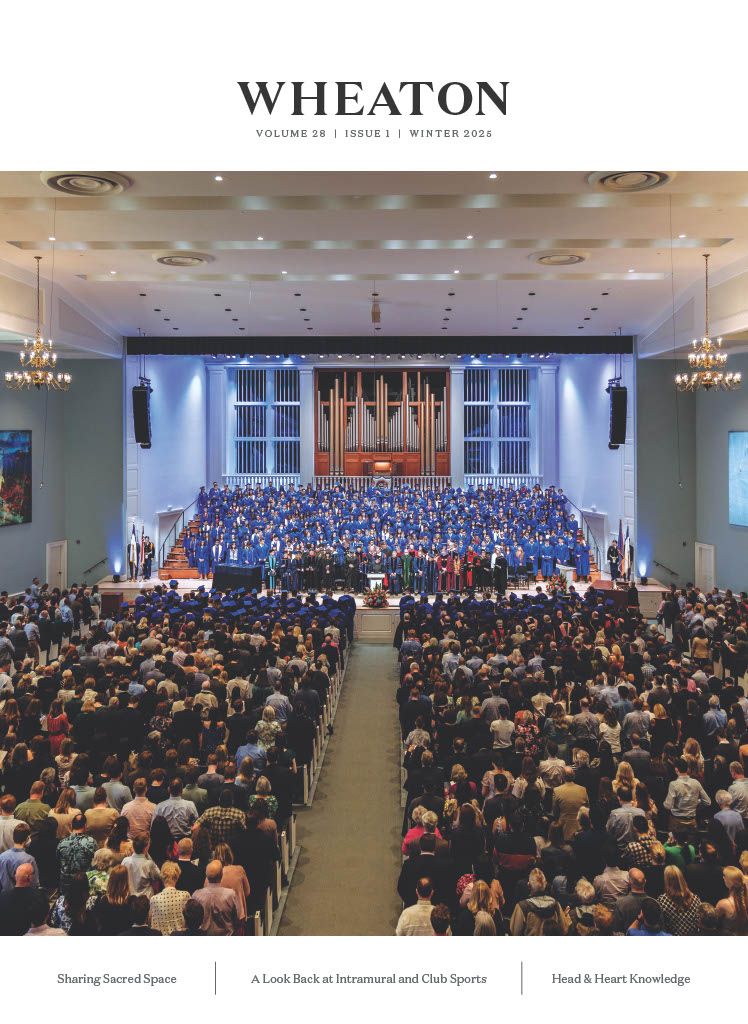Dr. David Van Dyke ’91
Director of the M.A. Program in Marriage and Family Therapy | Professor of Marriage and Family Therapy
Words: Bella McDonald ’24
Photos: Kayla Smith

Dr. David Van Dyke ’91
Dr. David Van Dyke ’91 initially enrolled at Wheaton College with a pre-medicine major. However, during a Student Missionary Partners trip to the United Arab Emirates one summer, he realized he didn’t enjoy the more bodily aspects of healthcare. After helping local doctors with everything from blood draws to birthing, he returned to campus and promptly switched to a psychology major.
Fresh out of college, he worked at Central DuPage Hospital in the crisis stabilization ward. There, he learned several clinical approaches and techniques for care, including marriage and family therapy. The therapeutic framework seized his interest, and he has remained passionate about MFT’s focus on families and communities, not just the individual.
“When I was introduced to MFT, I was drawn to the idea that pathology is not just internal to an individual but also relational,” Van Dyke said. “When parents bring a child in to see a psychologist, it’s not just the child’s problem. It’s the whole family’s.”
Van Dyke went on to earn his M.S. from Fuller Theological Seminary and his Ph.D. from the University of Georgia. In 2012, he returned to Wheaton to build the College’s master’s in MFT from the ground up. In collaboration with colleagues, he designed the curriculum, hired faculty, and later launched the Wheaton College Marriage and Family Therapy Clinic, which serves the Wheaton area and broader Chicagoland.
His approach to teaching has always been community-focused and integrated with faith, especially the relationship between believers and Christ. These core values also exist at the center of the relational work done in the MFT program. The outward-facing MFT clinic provides a developmental training model for students of the program, who spend their first eight weeks observing faculty-client sessions before working with clients of their own under faculty supervision. In their second year, they complete clinical hours with local partner organizations and practices. This emphasis on student-faculty relationships embodies the very therapeutic approaches they seek to apply in their work.
Van Dyke also maintains these values in his own work as a therapist.
“When I work with MFT clients, I tell them, ‘I think you should be part of this. I want you to be included,’” he said. “Therapy sessions become about working together rather than doing something to someone.”




